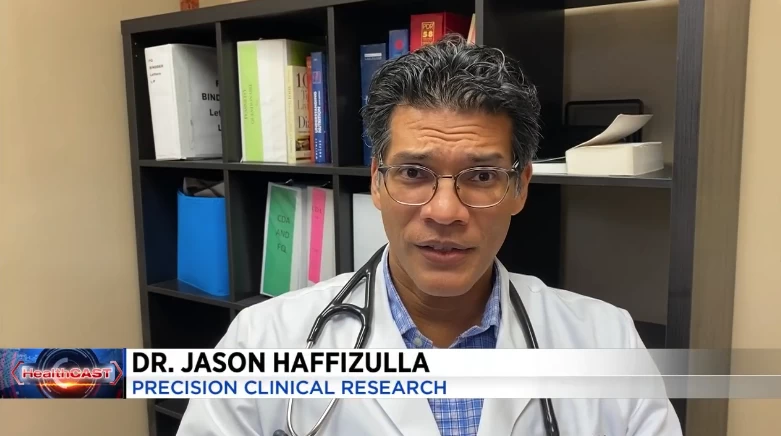
Research underway into adult vaccine for the respiratory syncytial virus
Precision Clinical Research’s Dr. Jason Haffizulla sat down with WLPG Channel 10 HealthCast to discuss the clinical trial we are conducting (part of a large scale clinical trial) into a vaccine for respiratory syncytial virus, or RSV, for adults over the age of 60. Dr. Jason Haffizulla explained that while there is a vaccine for children, it’s also needed in this at-risk older population.
“In adults 65 and older there are an estimated 144,000 hospitalizations for this with nearly 14,000 deaths from RSV. Unfortunately, it is a not-so-well-known killer,” he said.
About Respiratory Syncytial Virus
Respiratory syncytial virus (RSV), also called human respiratory syncytial virus (hRSV) and human orthopneumovirus, is a very common, contagious virus that causes infections of the respiratory tract. It is a negative-sense, single-stranded RNA virus, and its name is derived from the large cells known as syncytia that form when infected cells fuse together.
RSV is the single most common cause of respiratory hospitalization in infants, and reinfection remains common in later life: it is an important pathogen in all age groups. Infection rates are typically higher during the cold winter months, causing bronchiolitis in infants, common colds in adults, and more serious respiratory illnesses such as pneumonia in the elderly and immunocompromised.
RSV is spread through contaminated air droplets and can cause outbreaks both in the community and in hospital settings. Following initial infection via the eyes or nose, the virus will infect the epithelial cells of the upper and lower airway, causing inflammation, cell damage, and airway obstruction. A variety of methods are available for viral detection and diagnosis of RSV including antigen testing, molecular testing, and viral culture. While the main prevention measures include hand washing and avoiding close contact with infected individuals, a prophylactic medication called palivizumab is available to prevent RSV infection in high-risk infants. Currently, there is no vaccine against RSV, although many are under development is described in the clinical trial above.

